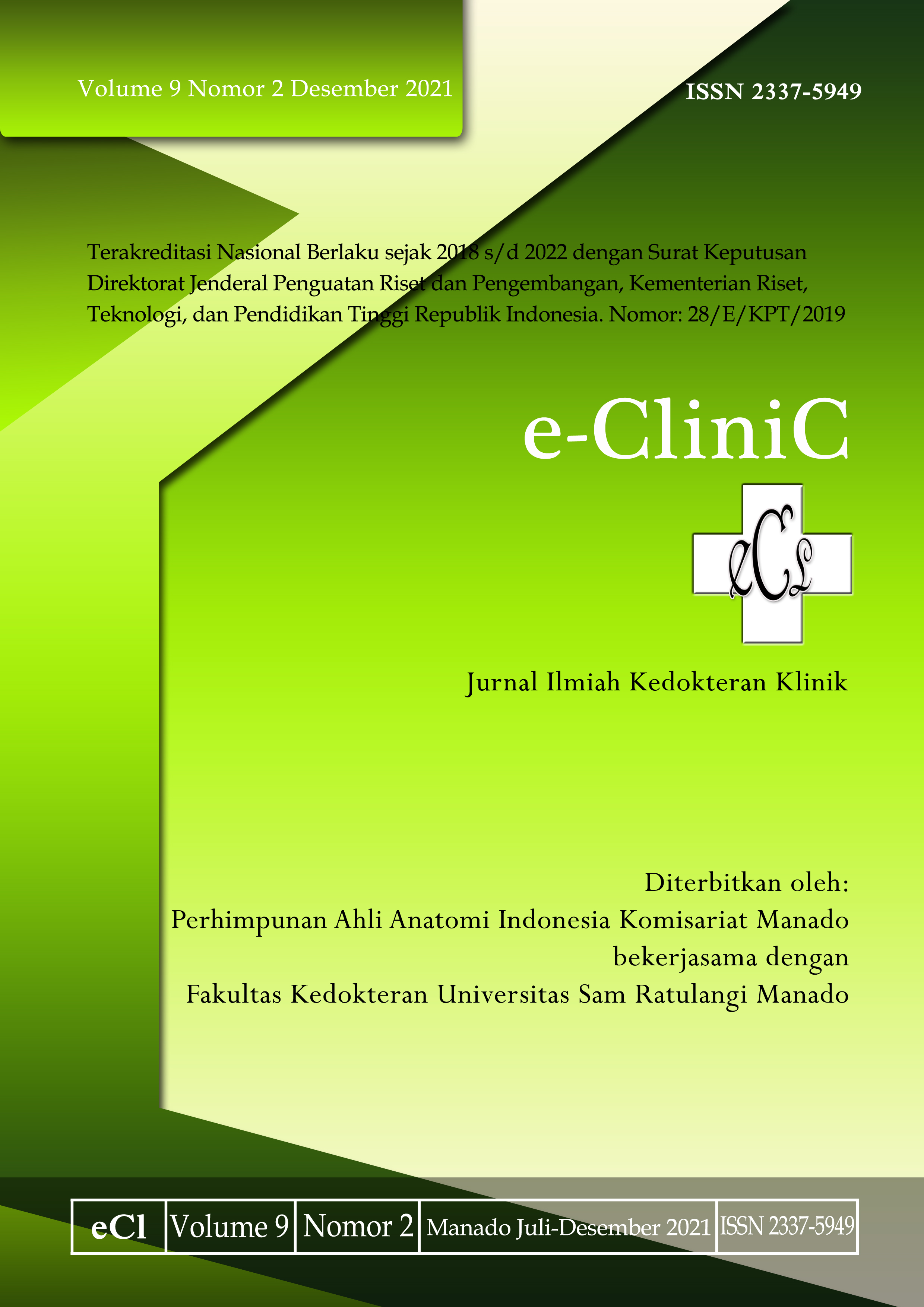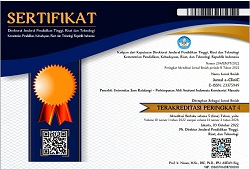Dampak Pandemi Coronavirus Disease-19 terhadap Mutu Pelayanan Kemoterapi di Ruang Delima RSUP Prof. Dr. R. D. Kandou Manado
DOI:
https://doi.org/10.35790/ecl.v9i2.33490Abstract
Abstract: Covid-19 pandemic has an impact on health services in hospitals, especially in chemotherapy rooms. This study was aimed to analyze the quality of health services dimensions, as follows: reliability, responsiveness, assurance, empathy, and tangible. This was a quantitative study using a cross sectional design. Subjects were adult cancer patients who received chemotherapy services before and during the Covid-19 pandemic in 2020 at Delima chemotherapy room of Prof. Dr. R. D Kandou Hospital Manado and met the inclusion criteria of 30 people, using a five-dimensional health service quality questionnaire. Data analysis was performed univariately and bivariately using the statistical Wilcoxon test p<α (0.05). The results showed that the reliability average before the pandemic was 89.60% and during the pandemic was 88.27% (p=0.008); the responsiveness average before the pandemic was 84.27% and during the pandemic was  83.47% (p=0.000); the assurance average before the pandemic was 95.47% and during the pandemic was 95.73% (p=0.157); the empathy average before the pandemic was 92.53% and during the pandemic was 92.27% (p=0.157); the tangible average before the pandemic was 78.53% and during the pandemic was 84.40% (p=0.000). In conclusion, there were differences in service qualities of reliability, responsiveness, and tangible dimensions but there were no differences in service qualities of assurance and empathy dimensions before and during the Covid-19 pandemic to patients at Delima room of Prof. Dr. R. D. Kandou Hospital Manado.
Keywords: Covid-19; chemotherapy; quality of service
Â
Abstrak: Pandemi Covid-19 memberi dampak terhadap pelayanan kesehatan di rumah sakit, terutama di ruang kemoterapi. Penelitian ini bertujuan untuk menganalisis mutu pelayanan kesehatan dimensi reliability, responsiveness, assurance, empathy, dan tangible. Jenis penelitian ialah kuantitatif dengan desain potong lintang. Subjek penelitian ialah pasien kanker dewasa yang mendapatkan pelayanan kemoterapi di ruang Delima RSUP Prof. Dr. R. D Kandou Manado sebelum dan pada masa pandemi Covid-19 tahun 2020 yang memenuhi kriteria inklusi sebanyak 30 orang. Penelitian ini menggunakan kusioner lima dimensi mutu pelayanan kesehatan. Analisis data dilakukan secara univariat dan bivariat dengan menggunakan uji statistik Wilcoxon p<α (0,05). Hasil penelitian mendapatkan dimensi mutu sebagai berikut: reliability, rerata sebelum pandemi (89,60%) dan masa pandemi (88,27%) (p=0,008); responsiveness, rerata sebelum pandemi (84,27%) dan masa pandemi (83,47%) (p=0,000); assurance, rerata sebelum pandemi (95,47%) dan masa pandemi (95,73%) (p=0,157); empathy, rerata sebelum pandemi (92,53%) dan masa pandemi (92,27%) (p=0,157); tangible, rerata sebelum pandemi (78,53%) dan masa pandemi (84,40%) (p=0,000). Simpulan penelitian ini ialah terdapat perbedaan mutu pelayanan dalam dimensi reliability, responsiveness, dan tangible namun tidak terdapat perbedaan mutu dalam dimensi assurance dan empathy antara sebelum dan pada masa pandemi Covid-19 terhadap pasien di ruang Delima RSUP Prof. Dr. R. D. Kandou Manado.
Kata kunci: Covid-19; kemoterapi; mutu pelayanan kesehatan
Downloads
Published
How to Cite
Issue
Section
License
COPYRIGHT
Authors who publish with this journal agree to the following terms:
Authors hold their copyright and grant this journal the privilege of first publication, with the work simultaneously licensed under a Creative Commons Attribution License that permits others to impart the work with an acknowledgment of the work's origin and initial publication by this journal.
Authors can enter into separate or additional contractual arrangements for the non-exclusive distribution of the journal's published version of the work (for example, post it to an institutional repository or publish it in a book), with an acknowledgment of its underlying publication in this journal.
Authors are permitted and encouraged to post their work online (for example, in institutional repositories or on their website) as it can lead to productive exchanges, as well as earlier and greater citation of the published work (See The Effect of Open Access).







